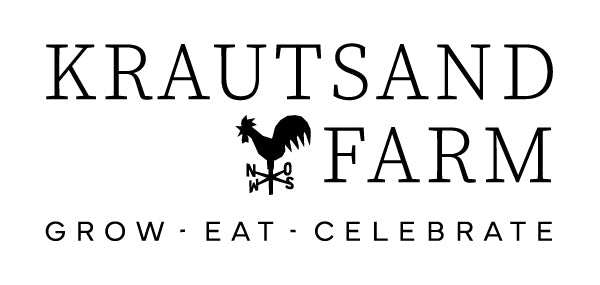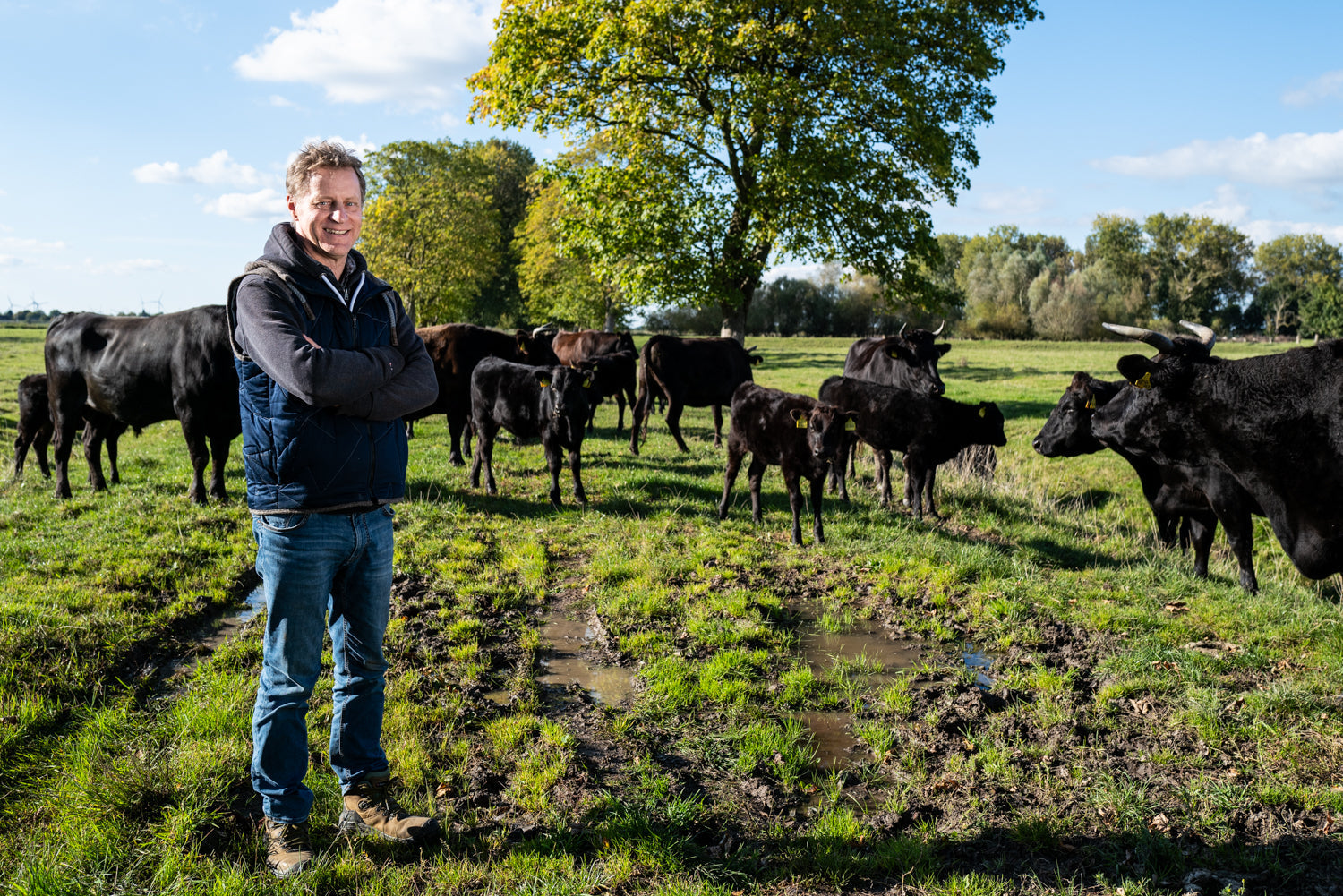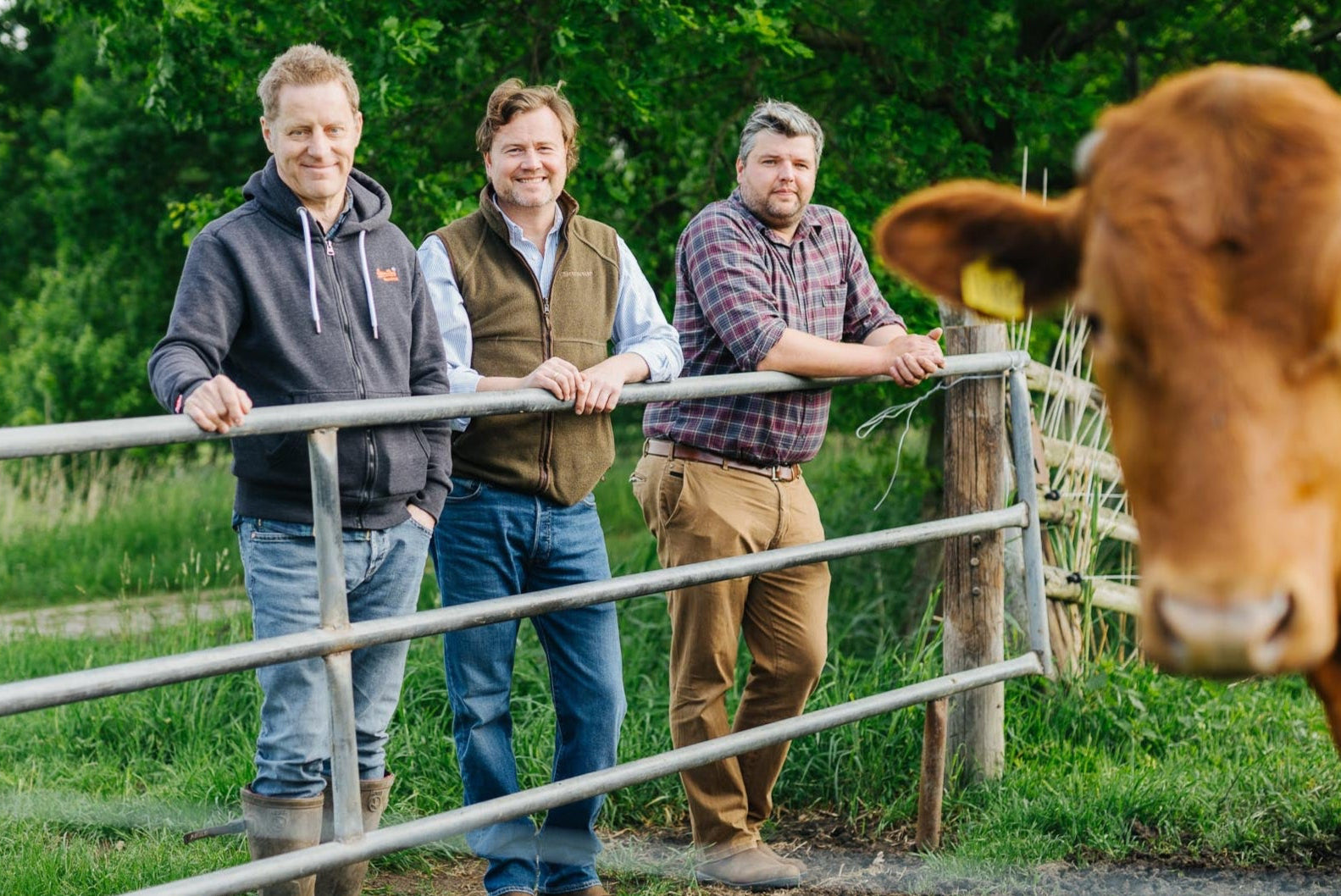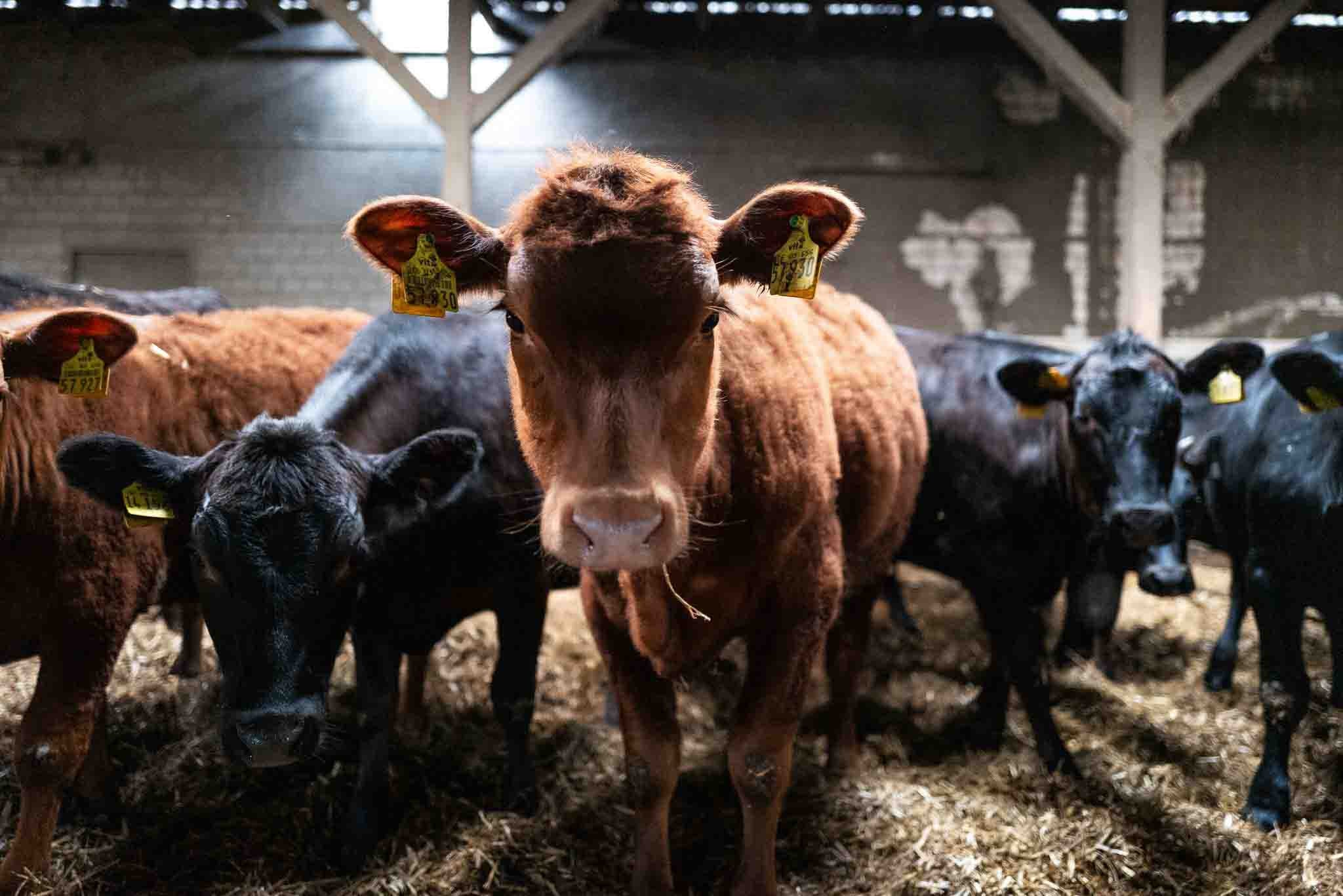Krautsand Farm: When did you take over the farm?
Folkert: In April 2021. That was the point at which we officially took over the farm.
Krautsand Farm: You mention "we." Are you the sole owner, or are there other partners?
Folkert: No, I took over the farm together with two partners: Andreas Winter, a farmer, and Dr. Sebastian Fietze, our veterinarian. This combination gives us the necessary expertise to build and manage the business in this form.
Krautsand Farm: How did you come to this region and ultimately to this farm?
Folkert: It was actually a long process. First, I met Sebastian, who already had a suckler cow herd, including Wagyu cattle. He had his herd with Andreas in Stade at the time, because Andreas looked after them for him. One day, Sebastian told me I should get to know Andreas. Andreas also had suckler cows himself and had been active in the region for a while. Then Andreas told us about this farm and said it was apparently for sale and that there were several interested parties.
Krautsand Farm: So you just bought the farm?
Folkert: Not quite. Initially, there was talk of leasing the farm. But I immediately said that I would only get involved if we could also buy the farm. Only then would we have the opportunity to invest long-term and properly implement our plans. It took about six to nine months to get everything sorted out, and in the end, we actually bought the farm.
Krautsand Farm: How did it come about that you, as a concert promoter, suddenly bought a farm?
Folkert: My father was a farmer, so I grew up on a farm. But as a teenager, I decided not to become a farmer and eventually became a concert promoter. I did that for almost 40 years. At some point, though, I started again with a few dairy cows and found my way back to farming. It's a return to my roots, so to speak.
Krautsand Farm: What connects you specifically to the Krautsand region?
Folkert: At first, it was more of a coincidence. I was taking a closer look at the region when Andreas told us about the farm. The more often I've been here, the more I've come to appreciate the area. It's quiet, the air is fresh, and the surroundings are beautiful. Now, I couldn't imagine being anywhere else.
Krautsand Farm: You've mentioned that you also struggle with the challenges of modern agriculture. What do you consider the biggest problem?
Folkert: The bureaucracy and the dependence on subsidies. Many farmers have to work under conditions that are dictated by politics and are constantly changing. Sometimes the regulations are so difficult to meet that it's almost impossible to operate profitably. Without subsidies, it would be impossible for many.
Krautsand Farm: What role does animal welfare play on your farm?
Folkert: That's crucial for us. We keep most of our animals outdoors in the pastures, as long as the weather permits. In winter, they move into airy, well-ventilated barns that meet all modern standards. We also have some animals that are not slaughtered for special reasons, such as the one cow we hand-reared. She will spend her final years here.
Krautsand Farm: What breeds do you keep on the farm?
Folkert: We have Angus, Welsh Black, and a pure Wagyu herd. We also breed hybrid breeds, such as Wagyu with Angus or Wagyu with Welsh Black, to see how the meat develops.
Krautsand Farm: Are there other projects on the farm?
Folkert: Yes, we've leased a 30-hectare apple orchard and produce apple juice. We also have chickens and sometimes pigs on our farm, which also provide us with great produce. We're also considering incorporating vegetable farming into the concept. There are many ideas, but you have to implement them step by step.
Krautsand Farm: How do you plan to make the farm accessible to the public?
Folkert: Through tours and events. I want people to see how farming can work today. We're also working on designing the farm so that visitors can see for themselves, for example, through information panels that explain the different areas of the farm. In the long term, I also want to offer more events here on the farm.
Krautsand Farm: What connects your work as a concert promoter with the farm?
Folkert: Actually, more than you think. I have a good network, including some artists and Michelin-starred restaurants. I could imagine that someday artists like James Blunt or Ed Sheeran will come here to try the meat. We already supply some Gourmet restaurants, some awarded with Michelin stars.
Krautsand Farm: Is there a particular vision for the future?
Folkert: Our vision is becoming ever bigger. We not only want to offer high-quality products, but also be a place that brings people together and rethinks agriculture. I want the farm to become a model – both for sustainable agriculture and animal welfare. At the same time, however, we must also ensure that the economic basis is sound.
Krautsand Farm: Where can you buy your products?
Folkert: We have our own butcher shop in Hittfeld and an online shop that will reopen soon. We're also in the process of finding a location in Hamburg to open our own store. We also supply restaurants and organic canteens, and in the long term, we want to bring our products even more to the region.
Krautsand Farm: Is there anything you would like to highlight?
Folkert: It's important to me that we demonstrate that agriculture and animal welfare can work together. Many people have lost touch with agriculture, and I want to restore that connection to them. That's what drives me.
"We not only want to offer high-quality products, but also be a place that brings people together and rethinks agriculture. I want the farm to become a model – both for sustainable agriculture and animal welfare."
"Many people have lost touch with agriculture, and I want to restore that connection to them. That's what drives me."




Leave a comment
This site is protected by hCaptcha and the hCaptcha Privacy Policy and Terms of Service apply.